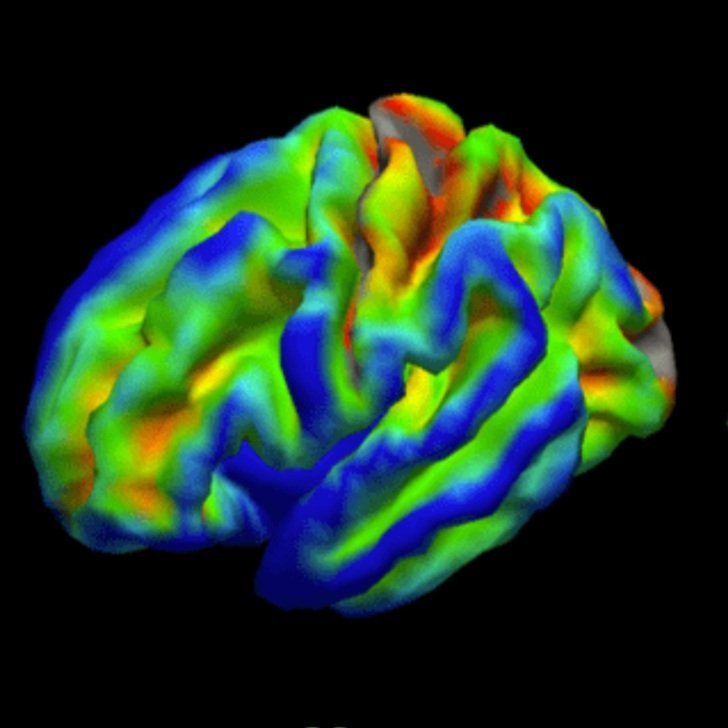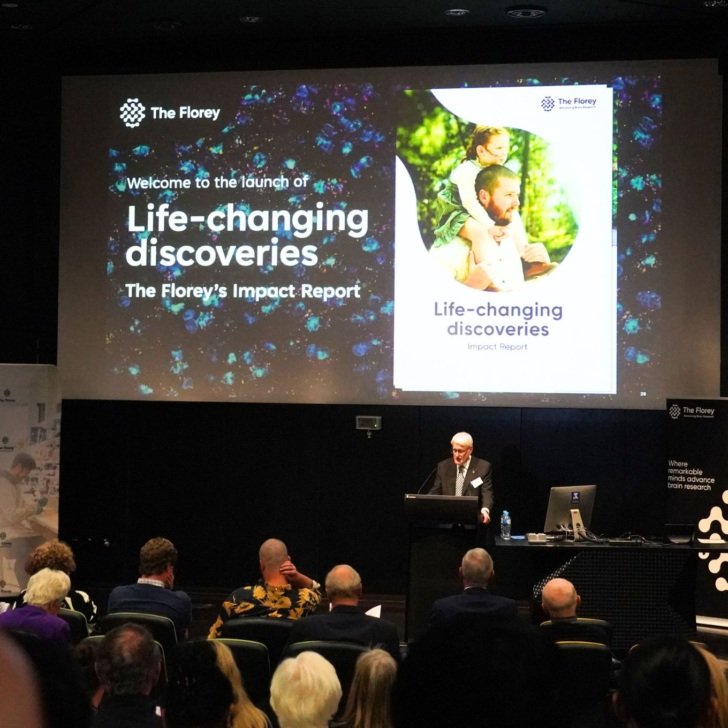
Epilepsy
Epilepsy is a complex neurological condition that causes seizures that affect people in a variety of ways. Seizures can range from being mild to severe and are often unpredictable, making them very debilitating.
Through insights from fundamental science, harnessing state-of-the-art brain imaging techniques, and working directly with people who have epilepsy, neuroscientists at The Florey are deepening our understanding of epilepsy.
Our teams are developing treatments that will provide more options and improve the care of people with epilepsy. We know that with the right treatment, most people with epilepsy are able to live a life without seizures.
The challenge
Focus areas
Stopping unexpected deaths in epilepsy
The cause of sudden unexpected death in epilepsy (SUDEP) is largely unknown and there’s no way to effectively predict or prevent it occurring. Florey researchers are working to identify epilepsy patients who are more at risk of SUDEP and discover treatments that will reduce this risk and to save patients’ lives.
Identifying cognitive and psychological concerns at epilepsy onset
Epilepsy often comes with a complex web of cognitive and psychological comorbidities, such as memory deficits and emotional disturbances. By gaining a clearer picture of the neuropsychological landscape at the onset of epilepsy, we can enhance the diagnosis and treatment strategies for patients, improving their overall wellbeing and long-term outcomes.
Delivering precision therapies for epilepsy
The Florey is at the forefront of developing precision medicine therapies for epilepsy patients. We know that genetic changes play a crucial role in epilepsy. Gene therapies, as well as small molecules and targeted surgeries, are being explored as potential treatment options for finding effective and personalised solutions for epilepsy patients.
MRI for improved surgical targeting in epilepsy
One third of people with epilepsy continue to have seizures despite treatment with anti-seizure medications. In these cases surgically removing the brain regions that cause seizures is often the most effective treatment. At The Florey, developing improved techniques to identify these brain regions is a key area of our neuroimaging research.
Conditions covered in this mission
Researcher spotlight
Revealing key disease mechanisms in epilepsy
Dr Melody Li is a postdoctoral researcher with the Ion Channels and Human Diseases Group. Her research interest is to reveal key disease mechanisms that drive genetic epilepsy, which will ultimately result in better therapies. Specifically, she studies mouse models of genetic epilepsy using techniques such as electrophysiology, behavioural assays and calcium imaging, including the discovery of antisense oligonucleotides that reverse epilepsy phenotypes in preclinical models.
Besides academic research, Melody also works closely with industry partners and leads in vivo drug discovery programs, which help advance novel therapeutic entities into the clinical pipeline.

Key projects
Understanding how genetic changes cause epilepsy
Many forms of epilepsy are caused by alterations in a patient’s genetic code. Sometimes, a single tiny change in the DNA can result in severe seizure disorder. In other instances, it’s a combination of several changes that can cause epilepsy. There’s still a lot we don’t understand about how these genetic variations lead to the symptoms of the disease.
Our goal is to bridge this knowledge gap by studying the effects of the genetic changes in lab-grown cells and animal models of genetic epilepsy. We use a variety of advanced technologies in our research. These methods include electrophysiology, which allows us to measure the electrical activity of individual neurons and neuronal networks in the brain. We also use imaging techniques to visualise neurons, neuronal networks and overall brain structure. Finally, ‘omics’ analyses is used to assess the changes in the expression of molecules that determine the structure and function of the brain.
Understanding the neuropsychological of epilepsy at disease onset
Epilepsy is not solely defined by its seizures but extends to encompass impacts on cognitive and psychological function that can profoundly impact the quality of life of epilepsy patients. These challenges may include memory deficits, attention issues, emotional disturbances, and even mood disorders.
By focusing on the initial onset of epilepsy, we aim to differentiate between factors that are intrinsic to the condition itself and those that may develop as secondary effects over time. This will enable us to tailor early interventions and support for patients and address their specific needs from the outset.
Understanding how drugs that impact the heart could increase the risk of SUDEP
Many commonly used drugs can block heart channels and potentially increase the risk of rhythm disruptions. It’s not known if these types of drugs can increase the risk of premature death in epilepsy. Our novel mouse models of SUDEP allow us to test how different drugs could change the risk of sudden death. We will look at a range of common drugs that include antibiotics, antipsychotics and drugs of abuse to see if they increase the chance of premature death in our genetic epilepsy models. This preclinical work will be important for informing clinical practice, and identifying certain drugs that should be avoided in epilepsy patients.
Improved surgical planning using computational analysis of neuroimaging
Advanced computational image analyses assist in epilepsy treatment by identifying where seizures occur in the human brain. These cutting-edge technologies are instrumental in planning surgical interventions. By leveraging high-resolution structural and functional imaging, neurosurgeons can accurately identify and target specific brain regions responsible for seizures. This approach is particularly promising for drug-resistant epilepsy. We develop methods for identifying how connections between brain regions are affected in epilepsy; this work assists in planning safe and effective epilepsy surgery.
Mission leads
Group Head
Research Lead
Group Head
Clinical Lead
Executive Lead
Research groups
- Epigenetics and Neural Plasticity Group
- Epilepsy Cognition Group
- Epilepsy Functional Genomics Group
- Epilepsy Neuroinformatics Group
- Imaging and Epilepsy Group
- Ion Channels and Human Diseases Group
- Neural Networks Group
- Neurophysiology of Excitable Networks Group
- Presynaptic Physiology Group
- Viscerosensory Group













